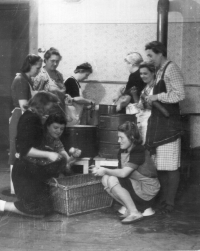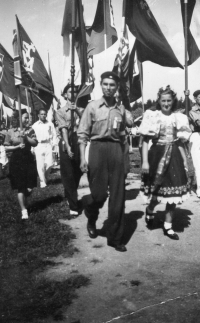We lived in belief that the children of communists would take up the membership
Stáhnout obrázek
Libuše Fajtlová, née Datlová, was born on 23 March 1932 in Kladno and grew up in a working-class family in Rozdělov. During the German occupation, in June 1942, she watched the burning of Lidice village from Kladno. Right after the war she became a member of the local Scout group and after the ban of its activity she joined the Pioneer organization. Both her parents became members of the Communist Party of Czechoslovakia after the war, and in 1948 the witness joined the party. In 1948-1949 she took a one-year preparatory course for her secondary school leaving exams and she was chosen with other students to study in Olomouc. In 1954 she graduated from the university and from 1956 lived and taught together with her husband in Cheb. In the 1950s, her father was convicted in a group show trial and served his sentence in Ilava, Slovakia. Soon after his return from prison he died. As a member of the Communist Party, she went through the party purges after 1968 and remained a member of that political party until the fall of the Communist regime in Czechoslovakia. She is one of the top in the field of bobbin lace making and is a co-founder of the association Krušnohorská Lace. At the time of recording she was living in Cheb (June 2022)

